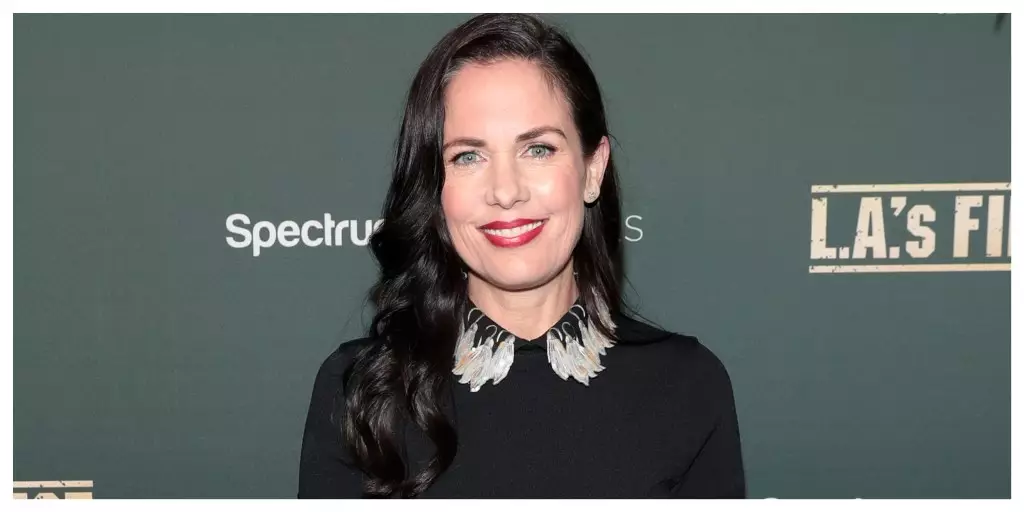In the evolving landscape of television production, the wisdom gained from past practices often becomes the cornerstone for future innovations. This perspective was aptly articulated by Katherine Pope, the president of Sony Pictures Television Studios, during a keynote interview at the MIA conference in Rome. Addressing a myriad of topics, from the anticipated fifth season of The Boys to her vision for a streamlined production timeline, Pope underscored the importance of embracing historical lessons in the face of contemporary challenges.
Pope’s extensive experience, including a decade at NBCUniversal before her current role at Sony, provides her with a unique lens through which to view the industry’s transformations. She noted that traditional broadcast systems instilled a sense of urgency regarding both time and budget constraints. “You really had to get shows done,” she emphasized, contrasting this with the current uncertainty in production timelines and financial viability that many in the industry are grappling with today.
One of Pope’s key observations is the resurgence of the rigor associated with the historical broadcast model, which she believes is essential for healthy production. By advocating for a structured approach amid the creativity of television, she argued that “creative production budgetary friction” can often yield innovative solutions to familiar problems. This notion posits that constraints can serve as catalysts for unexpected ideas. Whether it’s determining the filming location or optimizing the shooting schedule, Pope suggests that embracing limitations can lead to creative breakthroughs.
She envisions a future where producers find an equilibrium between the old and new—leveraging the streamlined, high-volume production capabilities of the past while embracing the artistic advancements gained in recent years. This blend, Pope argues, is where true innovation will emerge.
Sony Pictures’ determination to maintain its independence was highlighted by Pope as a significant advantage during this tumultuous period in the industry. In an age marked by market fluctuations and shifting business models, she pointed out that Sony has focused intensely on its core mission: delivering exceptional storytelling. With intellectual properties spanning various sectors, including Sony Pictures, PlayStation, and anime through Crunchyroll, Pope believes this creative reservoir allows for a diverse slate of projects.
Her confidence in the company’s direction reflects a broader sentiment within Sony, emphasizing that amidst the chaos of the streaming wars, their commitment to quality content over quantity has remained unwavering. “I feel lucky to be part of a company that is just focused on the reason we’re all here: great entertainment and stories told well,” she expressed, reinforcing the notion that clarity of vision is paramount in a cluttered media landscape.
Pope’s enthusiasm for The Boys, an anti-superhero series that has gained substantial traction, reveals her belief in the show as a symbol of Sony’s production excellence and growing audience engagement. She declared Season 4 as the highest viewership season to date, providing evidence that the formula for success can indeed trend upward over time—a “holy grail” for series production. The promising trajectory of the series contrasts significantly with the often sporadic and delayed releases many fans experience today.
Additionally, Pope is looking forward to the upcoming spinoff, Vought Rising, which she intriguingly compares to a blend of Mad Men and The Boys. This creative juxtaposition could offer insights into how Sony intends to balance thematic complexity with commercial viability in future productions.
However, Pope did not shy away from criticism of a trend towards “data-driven companies” that have led to slower renewal processes. According to her, this approach “is absolutely untenable” for audience retention and fan satisfaction. She voiced her frustration regarding the significant gaps between seasons, which often leave viewers feeling neglected and disconnected from their favorite shows.
Recognizing the industry’s tendency to rely heavily on data analytics before making renewal decisions, Pope advocated for a more proactive approach. She suggested that earlier script development and production acceleration could mitigate the negative effects of long waits for new content. “Everyone in the business is recognizing these timelines have got to be crunched,” she stated, emphasizing the necessity of maintaining fan engagement in an increasingly saturated market.
Katherine Pope’s insights during the MIA conference illuminate critical themes within the television industry: the fusion of historical rigor with contemporary creativity, the importance of independent vision, and the urgent need to prioritize audience engagement. As the television landscape continues to evolve, these principles may prove vital for producers striving to deliver meaningful content amidst rapid change.
